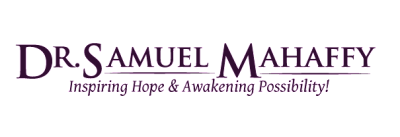
Have you heard the sound of two black holes colliding a billion light years away? Have we heard the silenced or marginalized voices in our own community or organization decision making processes?
Have you heard the sound of two black holes colliding a billion light years away? Have we heard the silenced or marginalized voices in our own community or organization decision making processes? The recent breakthrough findings in physics and astronomy that affirm the insights of Albert Einstein are a clarion call for us to practice the art of deep listening.
We are witnessing deep listening in outer space. Listen to the chirping sound of two black holes spiraling closer and closer together. This sound is all about relations–relationships between time and matter. The ripple effect of these gravitational waves open windows to new understanding of our universe. The chirping sounds affirm the existence of gravity. Gravity is what holds things together. It keeps us on the earth, it holds the earth in orbit around the sun. We have come to better understand and affirm the mystery of what holds our universe together through deep listening to the nearly imperceptible sounds in outer space.
Can we make the leap from deep listening in outer space to deep listening in our inner reflective space? Ordinary listening results in our being too quick to put forward our own position and preempts our ability to listen to others. Deep listening is relational listening. Relational listening requires clear intent to discover something new about ‘the other.’
Like the discoveries that come from hearing previously undetected sounds from outer space, deep relational listening will literally change our world view. Relational listening goes beyond active listening. Relational listening is about listening together to deepen both understanding and relationship. Relational listening allows new shared meanings to emerge.
When we listen deeply, we are changed by each other. In deep listening we are both the changer and the changed. New insights and understandings grow from deep listening. Deep listening requires us to hear both the voices that are privileged by the collective culture and the unprivileged voices that are ignored.
Deep listening requires us to be attentive to the context and environment. It requires us to have what Schön describes as a conversation with the situation. We must listen even to the voices of the hyenas invading our village and the extreme groups like ISIS that we define as our common enemy.
This unique sound we have heard from outer space, is “as if the cosmos is talking to us.”
Choosing to listen deeply is to step into the mystery. Deep listening opens us to be changed by others and the emerging new contexts in our world. Deep listening is transformative. It is discovery. Deep listening is the heart and soul of Relational Presence. If we hope to have peace in our lifetime and that of our children, we must practice deep relational listening. Without this deep listening, peace is not possible. If we care to mend our broken relationship with this incredible cosmos and address climate change, we must practice deep relational listening.
The cosmos is speaking to us. Those we have silenced are speaking to us. Are we listening?








 As a facilitator and management consultant, Samuel has assisted more than five hundred organizations, including community groups, churches, schools, and nonprofits around the world. He is a member of the Academy of Management. How might he help your organization?
As a facilitator and management consultant, Samuel has assisted more than five hundred organizations, including community groups, churches, schools, and nonprofits around the world. He is a member of the Academy of Management. How might he help your organization? 
A beautiful message, a beautiful metaphor, a beautiful graphic. Thank you Samuel, for this, and all you do to bring peace to the world.
I am honored by your kind words. Thank you.
Cacophony, both intentional and random, blunts perception and fatigues sensory receptors. Cultural cacophony is a chronic stressor, and thus inhibits and distorts meaningful attempts at relational intimacy. Loudness, especially chronic and targeted loudness, is disruptive and disorienting. Meaningful discourse requires abundant silences, for reflection and respect, to allow revelations to thoroughly wash over our souls. Meaning is fragile and requires vulnerability in the listener. The precious is easily torn by the strident, depth is fractured by the insatiable ego.